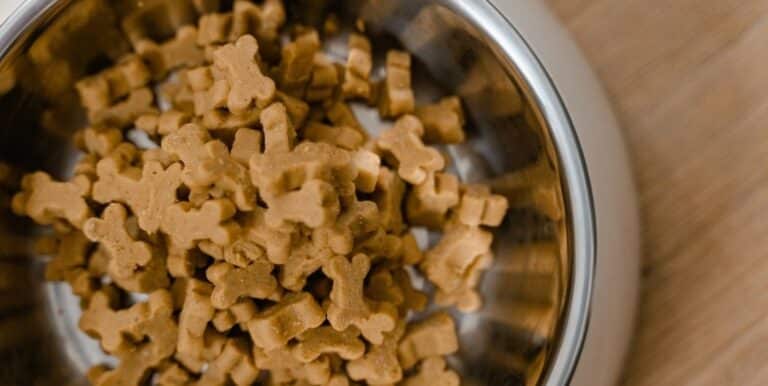What Are the Benefits of Using Vitamin K for Dogs?

Vitamin K is a fat-soluble vitamin that is essential for the health of dogs as well as humans. The benefits of vitamin K for dogs include improved blood clotting and reduced risk of bone fracture, as well as protection from liver cancer. Although natural forms of vitamin K are either found in common foods or produced by the body, a synthetic form of the vitamin, found in commercial pet foods, has been linked to liver problems, some forms of anemia and other diseases. Some veterinarians use vitamin K for dogs — in either a supplement or injectable form — as a treatment for the symptoms of rat poison toxicity.
This vitamin occurs in three forms. Vitamin K-1 is found naturally in dog-friendly foods such as spinach, broccoli, egg yolks and cabbage, as well as in some forms of algae and kelp. Another form, Vitamin K-2, is synthesized by bacteria in the intestines and absorbed by the body for enhanced immune function and blood clotting support. Vitamin K-3, however, is a synthetic precursor to vitamin K, which is added to manufactured dog foods, treats, supplements and some toys. This form of vitamin K for dogs, called meniadone or meniadone sodium bisulfite, converts to a usable form of vitamin K in the body but might cause toxic effects associated with blood and liver diseases, particularly when consumed in large quantities.

Generally, dogs that are on a nutritious diet, including foods containing vitamin K-1, do not need supplements of vitamin K. One key application of vitamin K for dogs, however, is in treating symptoms of rodent poisoning. The active ingredients in commercial rodent poisons, or rodenticides, are designed to interfere with the body’s production of vitamin K. This causes a failure of blood clotting mechanisms, leading to death from internal bleeding. Dogs who consume rodent poison or eat poisoned rats and mice are treated with vitamin K-1 supplements to restore normal blood clotting function and reduce poisoning symptoms such as lethargy, weakness and anemia.






